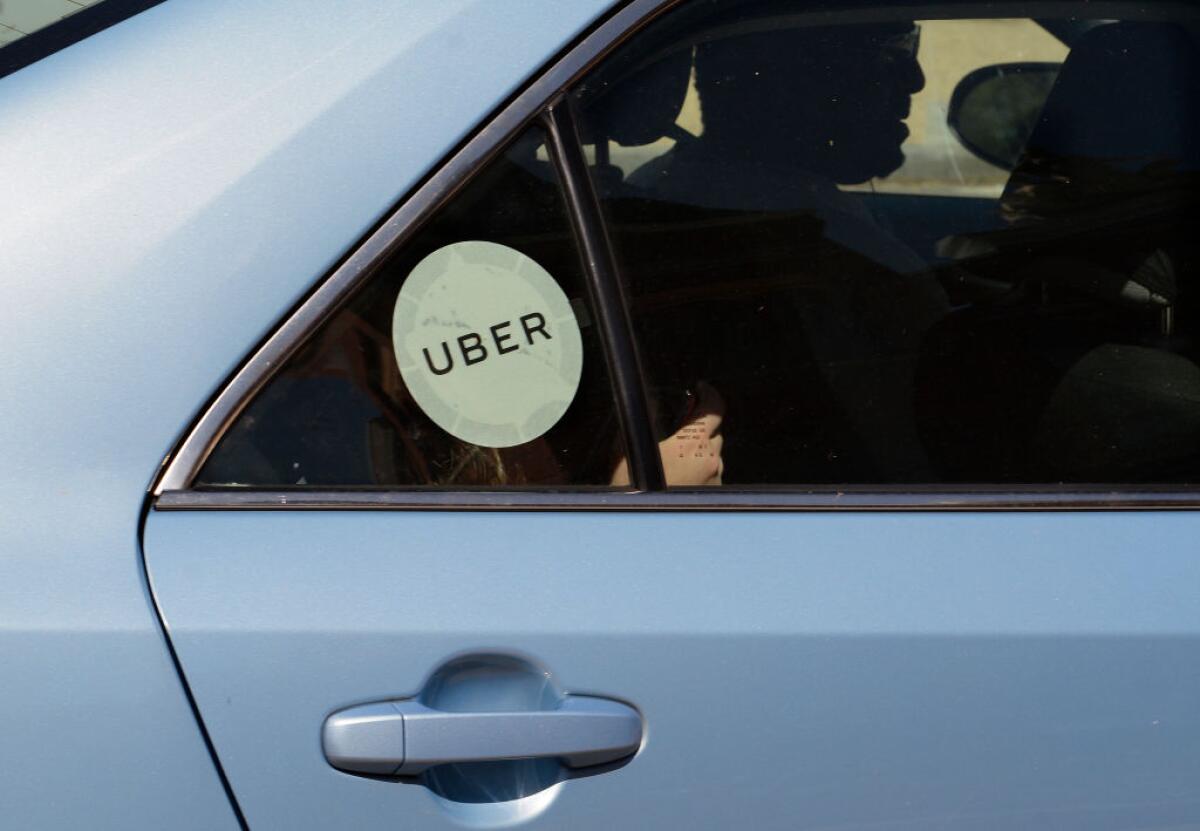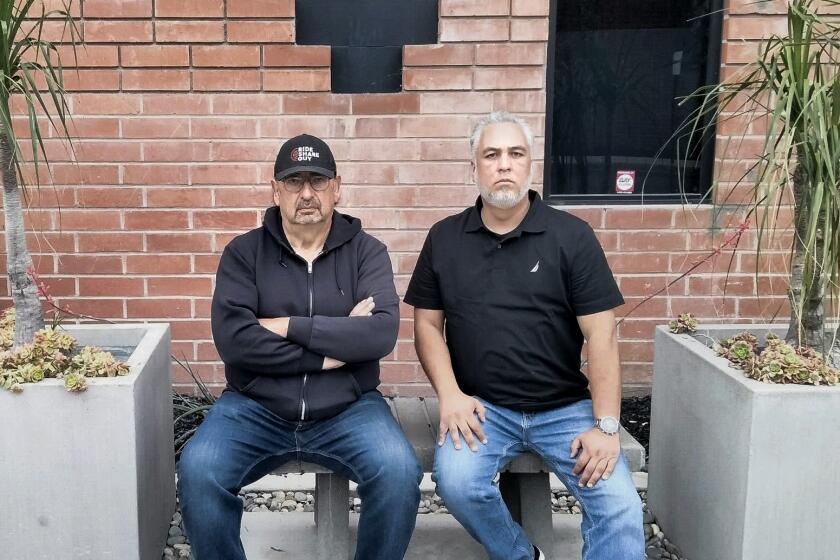California Supreme Court upholds Uber workers’ right to sue

- Share via
The California Supreme Court rejected an argument by Uber that sought to limit the ability of its drivers to take employment-related disputes to court.
In a case brought by driver Erik Adolph against Uber, the ride-hailing and delivery giant argued that because Adolph signed a contract requiring him to take any employment-related disputes to arbitration, he could not lead a case in court on behalf of other drivers.
California’s Private Attorneys General Act, or PAGA, allows workers to sue on the state’s behalf for labor law violations, and Uber’s argument, if recognized by the court, would have limited its scope. However, the court unanimously determined that Adolph could not sign away his right to represent his peers in a class-action lawsuit.
Employer groups have been closely following the case, contending that more “shakedown” lawsuits would result if the court found for Adolph.
The decision follows a U.S. Supreme Court ruling in June 2022 in another California case, Viking River Cruises Inc. vs. Moriana, in which the high court concluded the opposite, that PAGA violated the rights of employers and that the claims of other employees would have to be dismissed because the employee sent to arbitration would no longer have standing to pursue that litigation.
After Uber and other gig giants failed to pay a mandated rate hike, two eagle-eyed drivers started asking questions — and won a jackpot for California gig workers.
But Supreme Court Justice Sonia Sotomayor wrote a separate concurring opinion, stating that standing under PAGA was a matter of state, not federal, law and kicked the matter back to California.
“California courts, in an appropriate case, will have the last word,” Sotomayor wrote.
There is a long history of debate and litigation over whether employers can require workers to sign agreements waiving their right to sue over employment-related disputes. The state high court’s Monday decision aligns with previous rulings, including its 2020 decision in Kim vs. Reins International California Inc. and its 2014 ruling in Iskanian vs. CLS Transportation Los Angeles.
In the California Supreme Court opinion published Monday, Justice Goodwin H. Liu wrote that “an order compelling arbitration of the individual claims does not strip the plaintiff of standing as an aggrieved employee to litigate claims on behalf of other employees under PAGA.”
“The question here is whether an aggrieved employee who has been compelled to arbitrate claims under PAGA ... maintains statutory standing to pursue ‘PAGA claims arising out of events involving other employees’” Liu wrote. “We hold that the answer is yes.”
Liu had led questioning during oral arguments May 9.
Uber attorney Theane Evangelis of Gibson, Dunn & Crutcher said the ride-hailing company is reviewing whether to appeal the decision to the U.S. Supreme Court.
“The California Supreme Court’s decision contravenes the U.S. Supreme Court’s holding in Viking River, violates the Federal Arbitration Act, and undermines the legislature’s intent in enacting PAGA,” Evangelis said in an emailed statement. “We are considering our appellate options.”
Adolph’s original lawsuit, filed in October 2019, alleged that while working as an Uber Eats delivery driver, he had been misclassified as an independent contractor and as a result was not properly paid under minimum wage and overtime rules in the California Labor Code.
California Atty. Gen. Rob Bonta’s office had supported Adolph’s position in a friend of the court brief, noting that PAGA was “born out of a period of serious under-enforcement of the Labor Code that was disproportionately affecting some of the State’s most vulnerable workers.”
Under PAGA lawsuits, any monetary recoveries won for violations such as failing to pay overtime is split between employees and the state Labor and Workforce Development Agency, with the government receiving 75% of funds.
More to Read
Inside the business of entertainment
The Wide Shot brings you news, analysis and insights on everything from streaming wars to production — and what it all means for the future.
You may occasionally receive promotional content from the Los Angeles Times.












